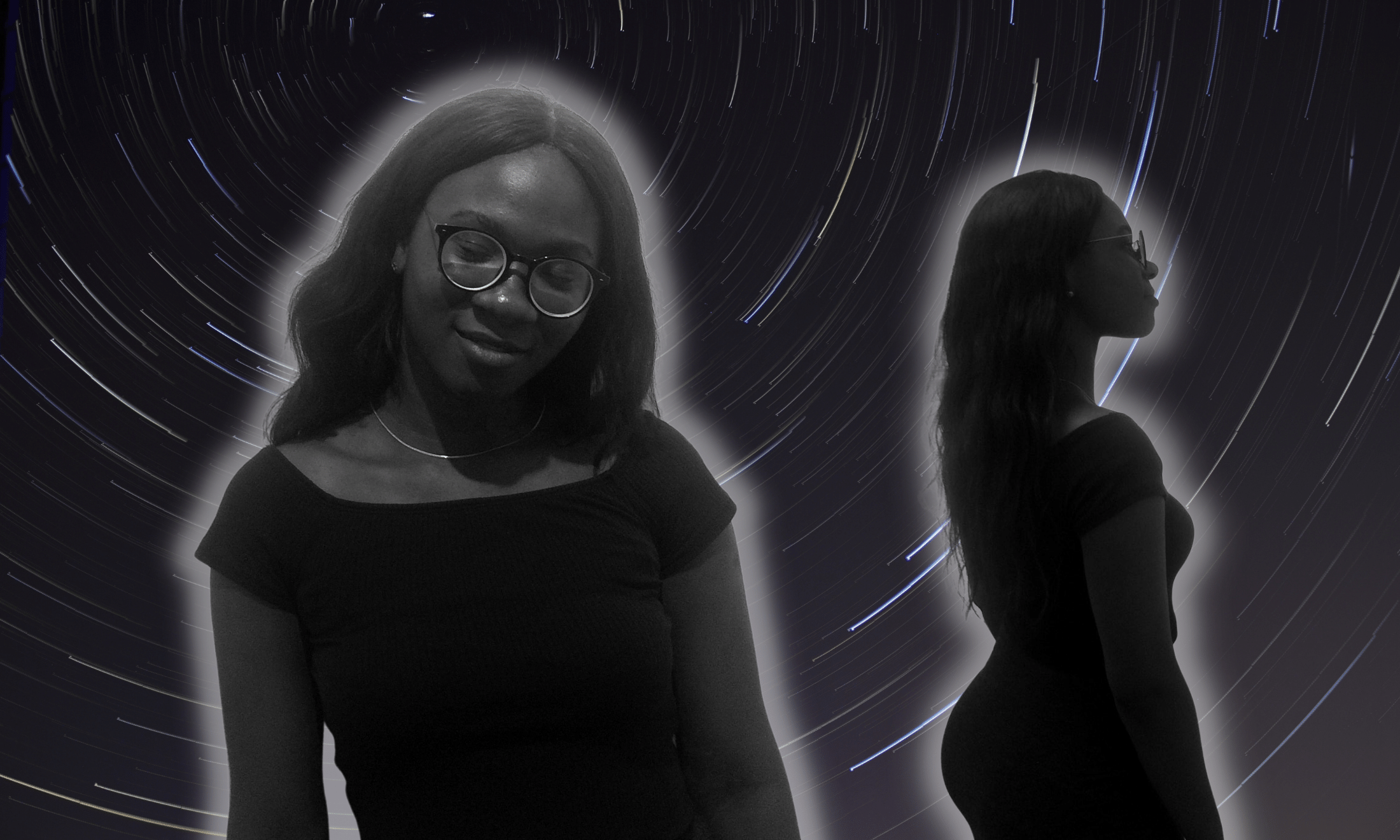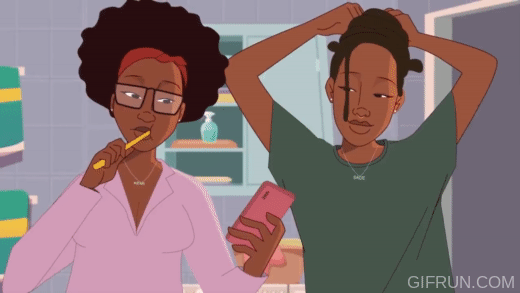
via author
My autism diagnosis felt like a homecoming
Receiving a diagnosis has helped me finally to breathe and start the process of unmasking.
Boluwatito Sanusi
05 Apr 2022
I was born on 28 February, meaning that my Zodiac sign is a Pisces. Pisces, and other water signs like Cancer and Scorpio, are said to be elusive; the ones who belong to some other mystical time and space. They’re emotionally sensitive and extremely self-aware. My whole life, I thought I was this way because of the month I was born in.
Until the day I was officially diagnosed with autism, I even believed that I was from another planet. It had to be the only reason why this world felt out of place – too bright, too violent. Why else couldn’t I walk barefoot on cold tiles, and not stand the sound of a fork grating a plate? How else could I explain that it takes huge preparation to be around the people I care for and love? How all the little things people do unconsciously during social interactions, I have to do manually. That when I’m with other people, I’m intimately aware of what I’m doing with every part of my body. It only made sense that I was from a different place and put on this earth where everyone was given scripts, and my notepad was blank.
“Over time, I learned to fill the blank pages manually, and play the role of being a human being”
Over time, I learned to fill the blank pages manually, and play the role of being a human being. I gravitated towards romance novels and women’s fiction because they allowed me to escape into a world where I was guaranteed a happy ending. I voraciously watched everything – reality tv shows, documentaries, thrillers. I got into school and studied people, then copied them – their mannerisms, styles, and even emotions. I found it challenging to figure out what I was feeling, so it became convenient to simply react the way I thought other people would. It was so much work, but being ostracised for my differences felt worse to me. .
Living in Nigeria, it often feels like some people don’t understand the concept of being different, whether that’s physically, mentally, or sexually. At home, it’s apparent when parents tell you to toughen up after you complain that certain sounds make you uncomfortable, or pray in your room all night when they discover you suffer from insomnia. At school, it’s obvious that the educational system is set up to benefit a few, and trigger breakdowns for others. Out in society, the default mode for everything is loud and fast. There is little-to-no structure for accommodating people with differences. When it comes to finding work, even though companies claim that they are ‘an equal opportunity employer’, you know you have to hide your otherness just to get your foot in the door. The only way to survive is to fit in.
I vividly remember an incident at my church when I was about seven years old. It was a Friday night Bible Study, and I had dozed off. At some point, the entire congregation shouted “Hallelujah”, and I woke up forcefully. I remember that I could feel my heart racing and my blood pumping. I was overwhelmed with this feeling of anxiety and fear. I began to hit my head on a chair in front of me until a church member saw me, and yelled at me to stop. On the day I got diagnosed and did some research about autism, this was a core memory that came to mind.
By the time I got my diagnosis, my body had had enough. I didn’t know it at that time, but years of performance and masking had taken their toll and my body started to protest. Last year, I felt permanently exhausted, was a lot more anxious than usual, found it hard to sustain relationships, and masking was a lot more difficult. I texted my friend and told her I needed help. The next day, we went to the Federal Neuropsychiatric Hospital, Yaba, in Lagos. After the initial assessment, I was given antidepressants, and anti-anxiety meds. A month, several tests, therapy sessions, and medications later, I was officially diagnosed with autism.
“I wasn’t from a different planet after all, my brain was simply wired differently. It felt like setting down a burden I didn’t even know I was carrying”
I was lucky that my diagnosis was fairly straightforward because other African autistic people I follow on social media, had to fight for months and sometimes years just to get one, if they were even able to get it. Women and AFAB folks are better at masking our challenges, and blending in due to patriarchal expectations placed on us. Autism has often been attributed to stereotypes of men who are rude and non-conforming. However this creates difficulty for many women and AFAB folk to ascertain a diagnosis, especially considering that many have been socialised to conform and cater to others. This is alongside the fact that in many countries, mental healthcare and mental health awareness feels almost nonexistent.
On the day of my diagnosis, I felt like I could finally breathe. I wasn’t from a different planet after all, my brain was simply wired differently. It felt like setting down a burden I didn’t even know I was carrying. Knowing that I was different allowed me to truly understand and articulate my needs – I could explain to my friends why sudden noises and bright lights made me uncomfortable or why I needed to leave a social event early, or not attend at all, without offending someone.
Most importantly, I could start the process of unmasking – of shedding other people’s personalities and finding myself. And I have enjoyed, and am still enjoying, the process of figuring out who I am, and what drives me. I have started to surround myself with a community of people who understand who I am, and accept me regardless. I can focus on my strengths – strong sense of justice, visual thinking and learning, hyperlexia, etc – instead of forcing myself into things that don’t come naturally. It is changing my whole life.





